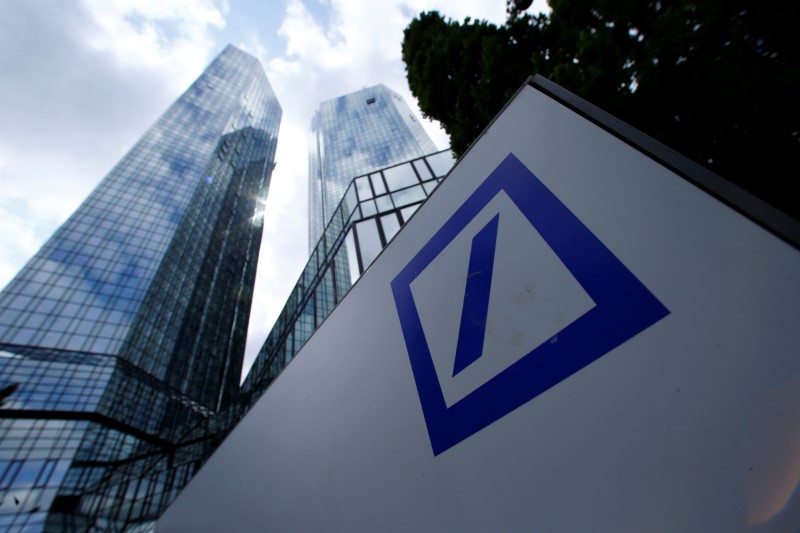FRANKFURT (Reuters) - U.S. House Democrats rejected an assertion by Deutsche Bank (DE:DBKGn) that privacy laws prevent it from sharing information about President Donald Trump's finances, as they investigate possible collusion between his campaign team and Russia.
In a letter to the bank's lawyers made public on Thursday, five Democrats who have been seeking financial information about Trump argued U.S. federal laws protecting banking customers' confidentiality did not apply to requests from Congress.
The bank could also circumvent privacy concerns by obtaining disclosure consent from the president and his family, they said.
"Given President Trump's repeated assertions that he does not have ties to Russia, such disclosure would ostensibly be in his interest," they wrote.
Investigations are underway in Washington into claims of collusion between Trump's inner circle and Russia during his 2016 presidential campaign - which both the president and Moscow have denied.
Public records show that Deutsche Bank loaned Trump millions of dollars for real-estate ventures.
As well as details about those transactions, the lawmakers are seeking information about a Russian "mirror trading" scheme that allowed $10 billion to flow out of Russia.
In January, Deutsche Bank agreed to pay $630 million (497 million pounds) fines over the scheme, which could have been used to launder money out of Russia.
NO POWER TO COMPEL
In the letter, dated Wednesday, Maxine Waters, ranking Democrat on the House of Representatives Financial Services Committee, and four peers reiterated requests for information and gave Deutsche Bank until June 29 to respond.
They first asked the bank in May to share what it might know about Trump's real-estate business and whether the president had financial backing from Russia.
Deutsche Bank's Washington-based external counsel responded to that request earlier this month by saying it was barred from sharing information about Trump's finances.
"We hope that you will understand Deutsche Bank's need to respect the boundaries that Congress and the courts have set in an effort to protect confidential information," the bank's law firm, Akin Gump Strauss Hauer & Feld, wrote.
A disclosure document posted on the U.S. Office of Government Ethics website last week showed liabilities for Trump of at least $130 million to Deutsche Bank Trust Company Americas[DBKGK.UL], suggesting the German bank is one of Trump's biggest lenders.
They included one exceeding $50 million for the Old Post Office, a historic Washington property where Trump has opened a hotel.
The Democrats do not have the power to compel Deutsche Bank to comply with their request. The Financial Services Committee has subpoena power but Republican committee members, who are in the majority, would have to cooperate.
No Republicans signed any of the letters to Deutsche Bank.
The Russian "mirror" trades involved, for example, buying Russian stocks in roubles for a client and selling the identical value of a security for dollars for a related customer.

Deutsche Bank has provided the Democrats with copies of settlements regarding the trades.